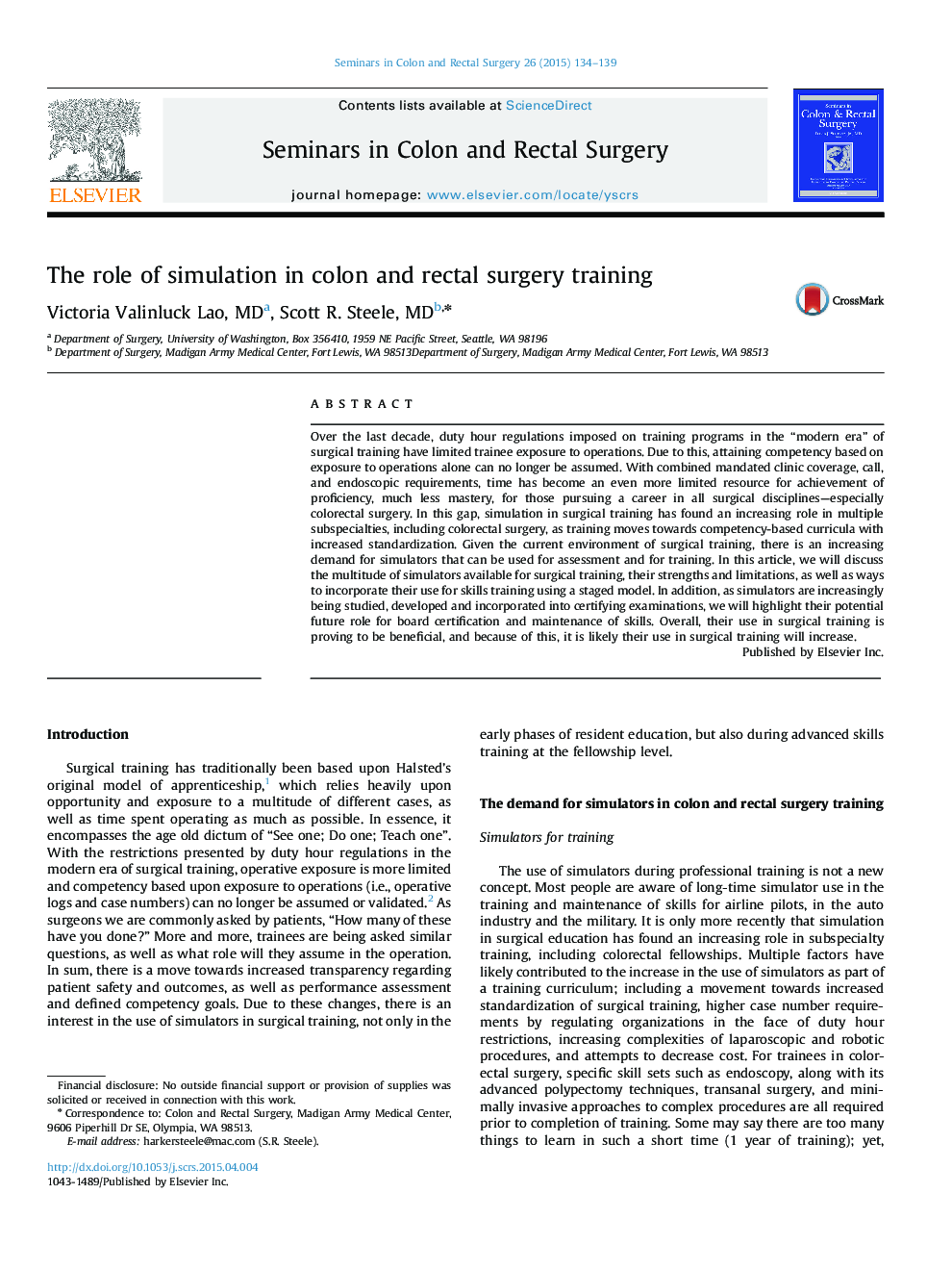| Article ID | Journal | Published Year | Pages | File Type |
|---|---|---|---|---|
| 3319296 | Seminars in Colon and Rectal Surgery | 2015 | 6 Pages |
Abstract
Over the last decade, duty hour regulations imposed on training programs in the “modern era” of surgical training have limited trainee exposure to operations. Due to this, attaining competency based on exposure to operations alone can no longer be assumed. With combined mandated clinic coverage, call, and endoscopic requirements, time has become an even more limited resource for achievement of proficiency, much less mastery, for those pursuing a career in all surgical disciplines-especially colorectal surgery. In this gap, simulation in surgical training has found an increasing role in multiple subspecialties, including colorectal surgery, as training moves towards competency-based curricula with increased standardization. Given the current environment of surgical training, there is an increasing demand for simulators that can be used for assessment and for training. In this article, we will discuss the multitude of simulators available for surgical training, their strengths and limitations, as well as ways to incorporate their use for skills training using a staged model. In addition, as simulators are increasingly being studied, developed and incorporated into certifying examinations, we will highlight their potential future role for board certification and maintenance of skills. Overall, their use in surgical training is proving to be beneficial, and because of this, it is likely their use in surgical training will increase.
Related Topics
Health Sciences
Medicine and Dentistry
Gastroenterology
Authors
Victoria MD, Scott R. MD,
